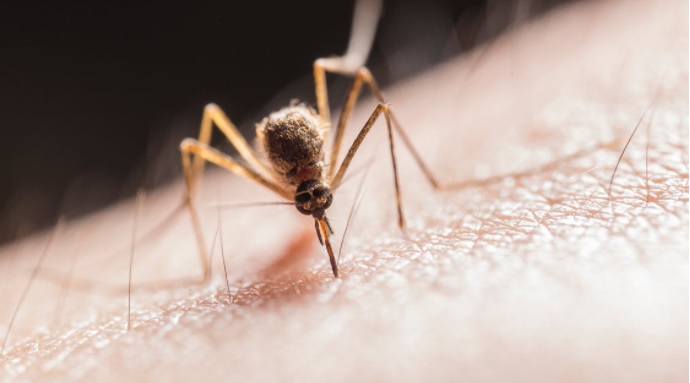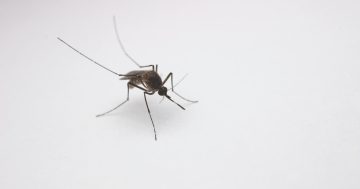
NSW residents are being urged to protect themselves against mosquitoes this summer as Japanese encephalitis was detected in the state in late December. Photo: Supplied.
Protect yourselves from mosquitoes to avoid illness during the summer holidays. That’s the message from NSW Acting Director of Environmental Health Paul Byleveld.
Dr Byleveld said the wet summer had drawn out high numbers of mosquitoes, and with more people spending time outside, the risk of being bitten was greater.
The 2022-23 summer saw several Japanese encephalitis cases recorded around the country, and Dr Byleveld warned that to prevent a similar spread this year, people needed to be mindful.
“Mosquitoes thrive in wet, warm conditions like those that much of NSW is experiencing,” he said.
“Mosquitoes in NSW can carry viruses such as Japanese encephalitis (JE), Murray Valley encephalitis (MVE), Kunjin, Ross River and Barmah Forest. The viruses may cause serious diseases, with symptoms ranging from tiredness, rash, headache, and sore and swollen joints to rare but severe symptoms of seizures and loss of consciousness.
“People should take extra care to protect themselves against mosquito bites and mosquito-borne disease, particularly after the detection of JE in a sentinel chicken in Far Western NSW.”
The NSW Health sentinel chicken program provides early warning about the presence of serious mosquito-borne diseases, such as JE. Routine testing in late December revealed a positive result for JE in a sample from Menindee.
NSW Health has also released advice on avoiding mosquito bites:
- Apply repellent to exposed skin. Use repellents that contain DEET, picaridin, or oil of lemon eucalyptus. Check the label for reapplication times.
- Reapply repellent regularly, particularly after swimming. Be sure to apply sunscreen first and then repellent.
- Wear light, loose-fitting long-sleeve shirts, long pants and covered footwear and socks.
- Avoid going outdoors during peak mosquito times, especially at dawn and dusk.
- Use insecticide sprays, vapour dispensing units and mosquito coils to repel mosquitoes (coils should only be used outdoors in well-ventilated areas).
- Cover windows and doors with insect screens and check there are no gaps.
- Remove items that may collect water, such as old tyres and empty pots, from around your home to reduce the places where mosquitoes can breed.
- Use repellents that are safe for children. Most repellents are safe for use on children aged three months and older. Always check the label for instructions.
- Protect infants aged less than three months by using an infant carrier draped with mosquito netting, secured along the edges.
- While camping, use a tent that has flyscreens to prevent mosquitoes from entering, or sleep under a mosquito net.
Anyone who is aged more than two months and lives in a high-risk area is eligible for a free JEV vaccine. High-risk locations include Wagga Wagga, Cootamundra, Cowra, Carrathool, Goulburn, Griffith, Orange, Narrandera, Parkes and Temora.
To find out whether you qualify for a free JEV vaccine, click here.
Original Article published by Jarryd Rowley on Region Riverina.



